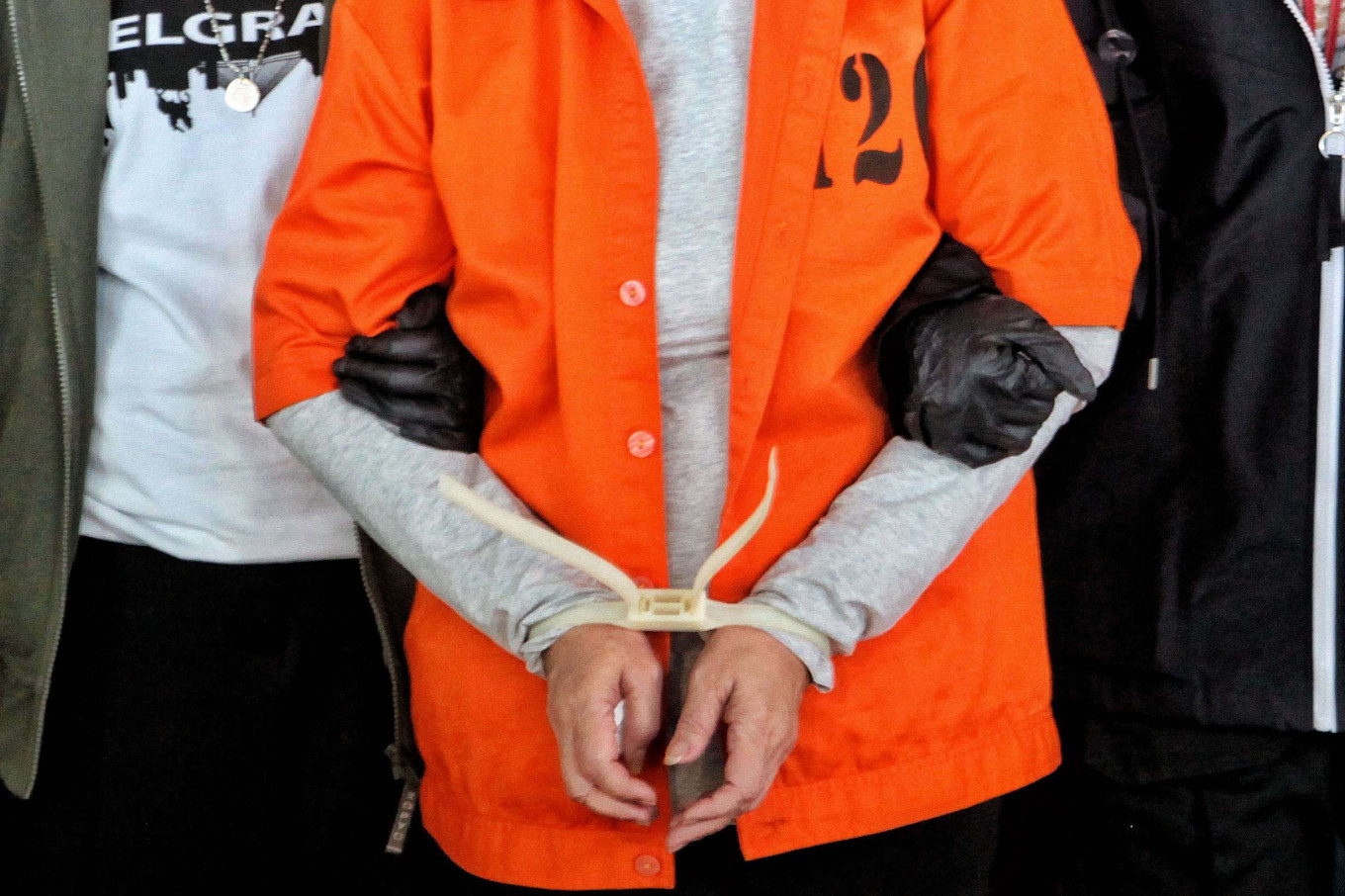Popular Reads
Top Results
Can't find what you're looking for?
View all search resultsPopular Reads
Top Results
Can't find what you're looking for?
View all search resultsDiplomacy pays off
Yasonna gave credit to Indonesian Ambassador to Serbia and Montenegro M. Chandra Widya Yudha for his “high-level diplomatic approach”.
Change text size
Gift Premium Articles
to Anyone
T
he absence of mutual legal assistance and extradition treaties between Indonesia and other countries has hindered the hunt for criminals on the run overseas, squashing any chances of recovering the state assets they have stolen. But as in the case of Maria Pauline Lumowa, such legal impediments can be resolved with good diplomacy.
After 17 years on the run, Maria was repatriated from Serbia on Thursday by Law and Human Rights Minister Yasonna Laoly and his team. The eastern European country and Indonesia have not signed any extradition or mutual legal assistance agreements (MLA).
Yasonna said Maria, who holds a Dutch passport, had tried to evade the extradition. The extradition process began after the Interpol National Central Bureau (NCB) in Belgrade apprehended Maria on July 16, 2019, as she was entering the country through Nikola Tesla Airport, then alerted the Indonesian NCB in Jakarta.
Maria was held responsible for a fictitious letter of credit to obtain US$136 million and 56 million euro ($118,846) in loans from state bank BNI between 2002 and 2003. She fled Indonesia for Singapore in September 2003, a month before the police named her suspect. She had been hiding in the Netherlands, from where she reportedly made several trips to Singapore.
Indonesia had twice requested the Netherlands for Maria’s extradition, in 2010 and 2014, but to no avail, according to Yasonna. The two countries have no extradition treaty.
Therefore, Indonesia relied heavily on diplomatic efforts to bring home one of its most wanted persons. Unsurprisingly, Yasonna gave credit to Indonesian Ambassador to Serbia and Montenegro M. Chandra Widya Yudha for his “high-level diplomatic approach”. Only April 6, the Serbian Ministry of Justice approved Maria’s extradition or more than seven months since her arrest.
One of the Serbian government’s considerations for allowing Indonesia to extradite Maria is the latter’s assistance in handing over fugitive Nicola Iliev, who was wanted for cybercrimes, in 2015. A few days before the transfer of Maria, Yasonna paid a courtesy visit to Deputy Prime Minister Ivica Davic, who is also Serbia’s foreign minister, during which Yasonna conveyed Indonesia’s support for Serbia’s territorial integrity in the conflict in Kosovo.
There is nothing new about reciprocity in diplomacy, which is indeed exercised for the sake of mutual benefits. In fact, long historical ties have marked the Indonesia-Serbia relationship, which dates back to the era of founding president Soekarno when Serbia was part of Yugoslavia.
If anything, the extradition of Maria should set a good precedent in Indonesia’s bid to capture fugitives hiding abroad and recover stolen state assets deposited in overseas banks.
Indonesia has signed extradition treaties with China, Thailand, Malaysia, South Korea, the Philippines, Australia and Hong Kong, and MLAs with China, ASEAN countries, Hong Kong, the United States and Australia. But they will not help unless interagency coordination at home is solid.
Poor teamwork should be blamed for repeated incidents of heavyweight graft suspects slipping through law enforcers’ fingers and fleeing the country unchecked.










